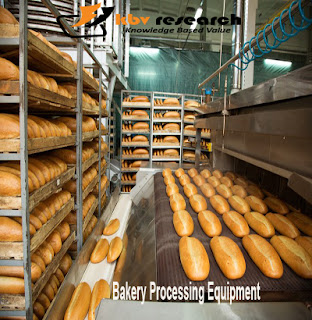Surgical Drains Wound Drainage Market Size | KBV Research
The
growing prevalence of general surgeries across the global healthcare sphere is
propelling the adoption of surgical and wound drainage devices. The surging demand for
advanced devices in several countries is leading to better enhancements in the
drainage devices. The rising geriatric population is indicating towards a high
rate of cardiovascular diseases. Furthermore, cardiovascular diseases are reflecting
the highest frequency of surgical procedures.
 |
| Global Surgical Drains Wound Drainage Market Size (2018-2024) | KBV Research |
In
some cases, serous fluid tends to weep from the skin, even in the absence of a
trauma or incision. This usually happens in response to severe pitting edema
following a medical condition or after enormous amounts of fluid are given, for
instance, during the treatment of severe trauma. Though secretion of fluids is
a part of the usual wound healing process, it might also indicate towards the
manifestation of harmful infections or unhealthy inflammation. These conditions
highlight on the importance and necessity of drains and drainage devices.
Drains
can often be bowed to wall suction, a movable suction device, or they may be
left to drain through natural processes. Accurate recording of the drainage
volume and the contents is important for creating a suitable healing
environment and observe excessive bleeding conditions. On the basis of drainage
amount, the drain can be placed for one day to a few weeks. Drains have
protective dressings that require to be changed daily as required.
Different
sorts of wounds necessitate different types of wound care products. A crucial
element that must be kept into consideration is the amount of exudate, that is,
pus, blood or other fluids that are coming from the affected area. Open wounds
as well as incision wounds, both reflect varied types of exudate, while some
may be perfectly healthy, others can point toward an infection or slow healing.
High
or low-pressure vacuum drains are generally used after surgical procedures.
High-pressure vacuum drains are efficient and enable easy monitoring and safe
disposal of the drainage. Low-pressure vacuum drains use moderate pressure to
evacuate excess fluid and air, and can be easily managed by patients at home
because it is easy to restore the vacuum pressure.
Open Surgical Drainage Systems
Open
surgical drainage systems include corrugated rubber or plastic sheets for
collecting drain fluid in a stoma bag or a gauze pad. Open drains empty
directly to the exterior inside the overlying wound dressings. These drains are
usually used in superficial wounds or cavities.
Closed Surgical Drainage Systems
Closed
surgical drainage systems consist of tubes draining into a bottle or a bag.
These are used for chest and abdominal drains. Closed drainage systems
significantly reduce the chances of infection. A closed drainage system needs
to be emptied on a frequent basis and measured at least once in every shift and
cleaned with the use of sterile technique. Closed suction drains are currently
witnessing emergence in their adoption rate. A closed suction drain is placed
under the skin during surgery. The drain removes blood or other fluids that might
build up in the area.
Increasing rate of surgeries is
propelling the market growth
Alongside
the aging of baby boomers, individuals aging 65 years or older are forming the
largest segment of Surgical Drains Wound Drainage Market
Size all
over the world. The aging population is leading to new challenges for the
surgical professionals because older individuals are the largest consumers of general
surgeries. According to statistics, general surgeries will surge dramatically
over the coming years majorly to due to the aging population. Furthermore, over
next 20 years, cardiac and thoracic surgeries would witness significant adoption.
According
to a recent report published by KBV
Research, one of the leading research companies, the worldwide Surgical
Drains Wound Drainage Market is in the cards to reach $2.3 billion, growing at a rate of 3.8% CAGR over the forecast period.
The
present and future of orthopaedic surgeries is bright for the professionals
working in this field. The growing number of surgeries also increases the risk
for surgical drains and wound which might be caused during or post a surgery.
Thus, the market for surgical drains and wound drainage is expected to propel
over the forecasted period.
Click Here For Free Insights: https://www.kbvresearch.com/news/surgical-drains-wound-drainage-market-size/



Comments
Post a Comment